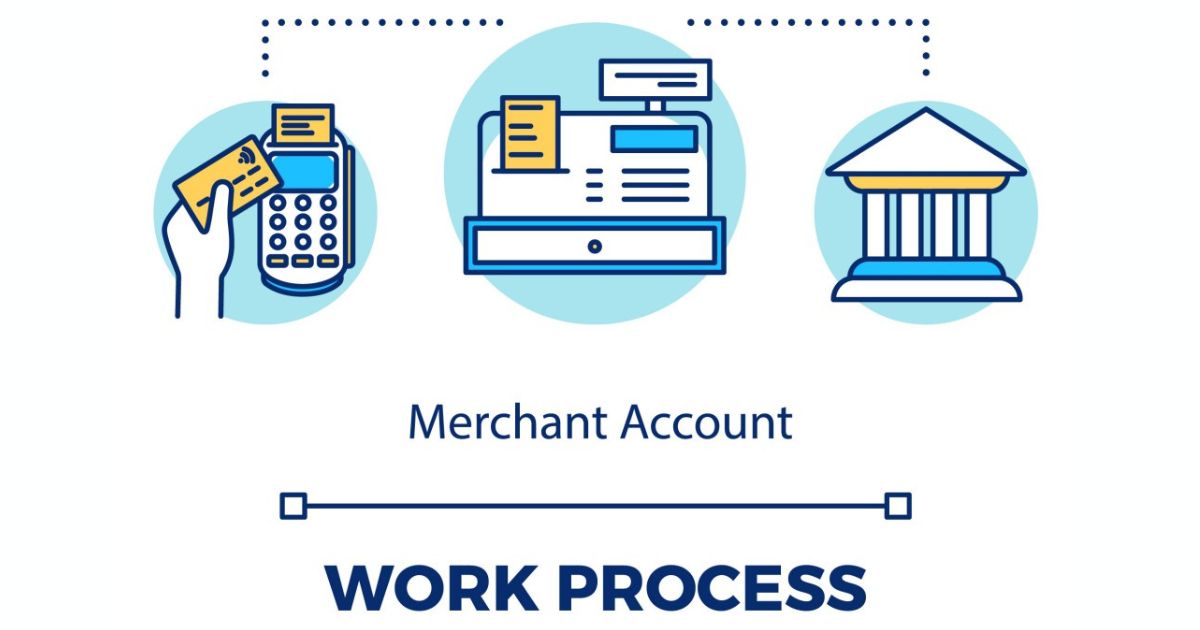
| July 12th, 2022 |
How Do You Define A Merchant Account?
A merchant account is a type of bank account that enables businesses to accept and process electronic payment transactions safely. A merchant account allows businesses to accept payments either through debit or credit cards.
Do you exactly know how a merchant account works?
A merchant account works by charging customers a small fee in exchange for quick access to the funds from their organization’s credit card transactions. Then, they deliver customers the money for electronic transactions.
So, every time customers utilize their credit cards, they pay cash and establish a promise to deliver within the stipulated period. Moreover, there is a greater chance that they will not pay off their credit card for months or years.
Merchant accounts work in robust synchronization with card issuers, including Visa or MasterCard. They help merchants to get connected with the payment gateway to process payments. As a result, all transactions related to merchants are being processed through the consumer’s electronic payment.
So, why wait months to accept payments from your customers to pay off their credit card bills when you can create a merchant account to process payments emerging directly from your electronic transactions? It will not only help in depositing your funds directly into your merchant account and then into your business bank account, which will generally work within a few days.
Are you worried about merchant account fees? If yes, read your answer given below-
You will be surprised to know that merchant account fees vary slightly; they are labeled the least expensive, and you can easily afford them. One of the main components of merchant account fees is interchange fees which can be paid directly to a card-issuing bank that can easily cover handling costs, fraud, bad debt, and the overall risk of approving the payment. It usually involves a flat rate along with a percentage of total sales.
Some of the other merchant account fees include, but don’t remain limited include-
Setup- It is accumulated as a one-time fee to set up the merchant account.
Point of Sale- If a merchant plans to acquire a physical system that will allow them to process credit card transactions, there shall likely be a fee for the hardware.
Monthly/Yearly- It works as a recurring fee that allows merchants to pay for the benefit of using their service regardless of the number of transactions that they have incurred.
Statement- It works as a fee for printing and mailing the monthly statement.
Chargeback- It works as fees from customers challenging credit card transactions from their business.
Cancellation- It is labeled as the fee that a merchant has to pay in the event of canceling their contract early.
Do you know about different alternatives to a merchant account?
Payment service providers such as Square, PayPal & Stripe, and many more are labeled as merchant account alternatives. These providers help in aggregating all their customers’ transactions into one account and help in transferring their transactions directly into a business bank account.
However, payment service providers work essentially for their size of business. When a business grows, a merchant account can help reduce fees, give instant access to funds, and help avoid frozen accounts. On the other hand, it helps merchants to provide customers with a better payment option.
A Read Below To Know The Benefits of a Merchant Account:
The merchant account easily allows one to accept credit card payments which on the other side helps merchants to boost their sales in business.
It facilitates merchants with an option to reduce their fees for more significant transaction amounts as well as for larger transactions.
This account helps merchants avoid frozen accounts or monthly maximums while depositing to their business account.
They present customers with better customer support for their business.
How could you open a merchant account?
There is absolutely nothing for you to worry about, as there are some meaningful points that you must read.
Assess Your Needs:
You must think about your business’s needs linked to the number of transactions they will prefer and the exact payment processor required for your business. For an assumption, you need to know how many transactions you need to plan while processing transactions each month and how much a merchant can predict its growth in the future.
Analyze Your Research:
When you have assessed your needs, you need to research several vendors. You must select a company that provides competitive rates and provides merchants with excellent customer service.
How to Apply for a Merchant Account?
Being a merchant, when you have chosen a company, then your time to complete an application shall begin. You are required to be prepared with the following-
Bank account & routing information
Financial statements
Credit History
Employer Identification Number
Business License
Some vendors might require an accurate business plan, marketing materials, or shipping policies.
